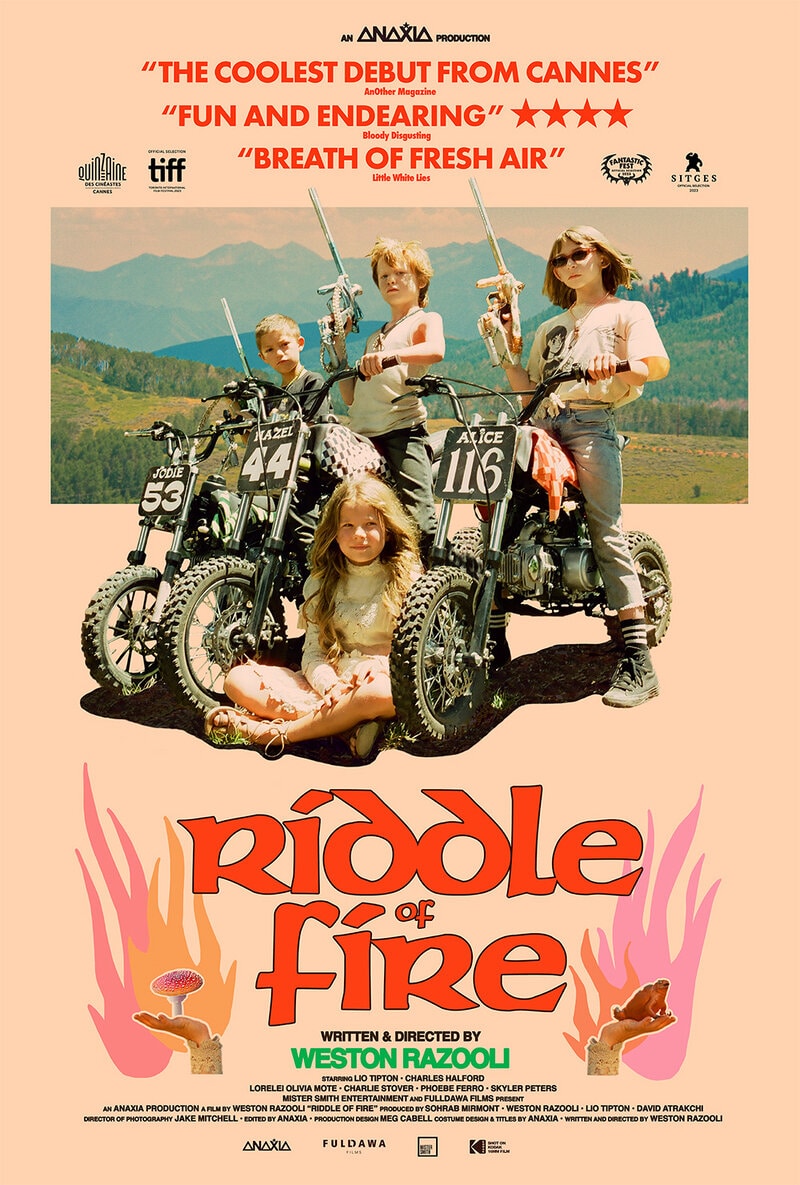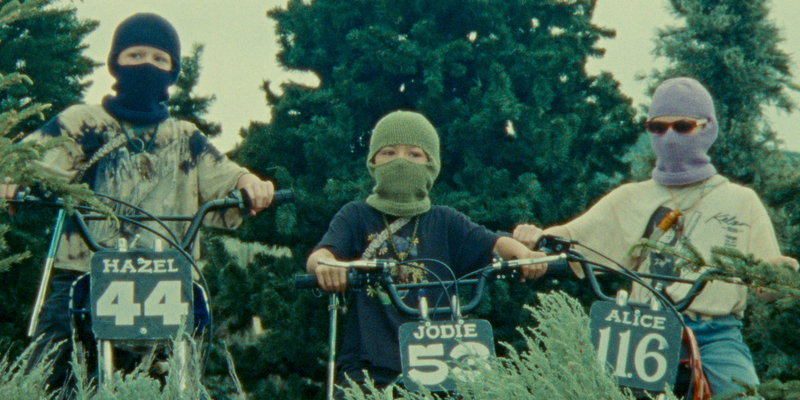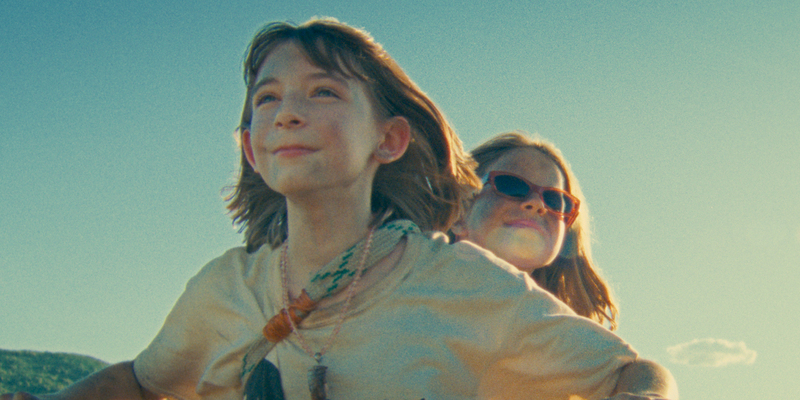
Review by
Benjamin Poole
Directed by: Weston Razooli
Starring: Lio Tipton, Charles Halford, Charlie Stover, Skyler Peters, Phoebe Ferro,
Lorelei Olivia Mote

You know in Men in Black when Will Smith has that
instrument capable of wiping a specific series of events or memories
from a person’'s mind with a single extra-terrestrial flash? I've often
thought about how amazing it would be to use it to remove certain pop
culture from my brain box. Not the crap stuff, because you never
remember that anyway, but the good stuff; the good stuff which has been
parodied, memed or replicated so far beyond the original experience that
the initial impact has been besmirched. I'm thinking of the music of
ABBA divorced from its cheesy hen-night connotations and returned to
bleak pop imperialism. The epic Romantic philosophy of Mary Shelley's
'Frankenstein (the book not the Branagh). The Exorcist. It's an old man's wish, I know. And futile, too: you can't go home
again, as they say. Nostalgia is for wimps. I can no more read
'Wuthering Heights' for the first time again any more than I can ride my
kick bike to the 24/7 for a Slurpee, popping a couple a quarters into
the Pac-Man coin op before hanging out at the creek and trading baseball
cards with the rest of the eighth grade.

But the urge, the conservative need to return to the past, or at least
to duplicate those fresh and exciting formative sensations, abides. An
entire industry caters to this atavistic desire. So much so, that I'm
beginning to be gaslit into having memories of a past I never actually
experienced (I'm not entirely sure what a Slurpee is, for example).
2024's Riddle of Fire (writer/director
Weston Razooli) is such fare, tapping into a strange hauntology
with its proposed narratives of derring kid adventures, and constructing
a nostalgia so beatific and fringe that it is almost aspirational.
We are firmly within the kids-on-bikes genre here (Stranger Things, It: popularised by E.T., the auteur of which I think is to blame for this sort of wistfulness,
but that's an argument for another time) as a trio of latchkey kids
(around 10 to 12 years old, I guess) break in to a factory to steal a
video game console: when they get caught they harmlessly shoot the
startled guard with pop guns before shootin' off on their dirt
bikes.

The film goes on to introduce a MacGuffin via the kids needing to unlock
the parental protection on the family television. Their mother is
unwell, and the little smashers reason that if they can make a blueberry
pancake (do you see what I mean about construction?) she'll give in and
8bit heaven awaits. It's just so gosh darn whimsical! The
bricolage of home spun nostalgia is forceful: we'll see empty highways,
trout fishin', fairy tale magic realism; all presented within a sun
kissed frame which is as bleached out as your favourite summer painter's
cap. As it progresses, though, the narrative threatens to become Tom
Sawyer meets The Sawyers when the kids come across a drug-smoking
pseudo-culty group of dangerous poachers, with the film pushing its
sweet melancholia into a recognisable plot structure.
There is a feel of regional American folk cinema in
Riddle of Fire, a painstakingly authentic confection of not only period setting but
shrewd casting. The film also refers to exploitation texts with its sexy
gang, along with the soundtrack which invokes Fuzzbee Morse's tinkly 80s
scores. The entire film is shot using 16 mm film, too: it is clear that
Riddle of Fire is a labour of love. And if you like this
sort of thing, I imagine that it would really hit the spot. But other
than the culturally homesick, it is difficult to pinpoint who this is
for: it feels like a kiddy film you'd find on a minor channel during a
summer holiday morning, but the language and adult nature of it
restricts that potential audience. It's too long, too, with very
extended sequences where, due to the winsome amateur nature of the child
performances, you'll find yourself affecting the same supportive grimace
as when you're watching a school play in which your younger
nieces/nephews earnestly perform.

Riddle of Fire never seems cynical about its nostalgia,
quite the opposite. It has an open heart and a genuine yearning for this
era: or more accurately, the sort of movie perceived to be made during
the past. I'm sure Razooli's film will find an audience (it's too richly
made not to), but some of us, while not exactly wishing for the oblivion
of Agent K's neuralyzer during Riddle of Fire's nigh on two hour running time, may well be ruminating on how the
summer holidays really do seem to go on forever when you're younger...

Riddle of Fire is in UK/ROI VOD now.

